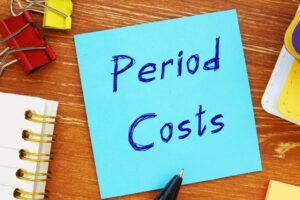
If you own a rental property, you have to report all of the rental income you receive. However, keep in mind that it includes more than just those monthly rent checks. For example, any expenses your tenants pay to you such as utilities, laundry revenue, late fees, and other fees, also count as rental landlord bookkeeping income. We were one of the first to launch a mobile app for rental property management – on both iOS and Android. Categorize transactions, check key metrics, scan receipts, and show off your portfolio from virtually anywhere with just a few taps.
Automating Accounting for Emerging Property Managers
Instead, landlord-specific accounting tools like Baselane make tracking income and expenses for multiple rental properties easy. While QuickBooks has long been a go-to accounting solution for small businesses, it’s not designed for landlords. It’s focused on providing accounting solutions but is missing key rental property finance features, including rent tracking, automatic late fees, and real estate-specific reporting. Designed as a comprehensive solution for property management, Hemlane is for landlords, property managers, and real estate investors. It offers a variety of tools for tasks like rent collection, maintenance coordination, advertising, and tenant screening.
- Capital repairs, on the other hand, are major improvements or replacements that increase the value of the property or extend its useful life.
- With digital bookkeeping systems you can keep your records up-to-date in real-time, and do away with piles of paper and boxes of receipts.
- However, Stessa’s unique features and user-friendly design, tailored to individual landlords and real estate investors regardless of portfolio size, help it stand out from the rest.
- Tax season is another time that you will find property management software helpful, as many provide helpful tax tools and online filing options integrated into the system.
- Store your receipts digitally by scanning or taking a photo for easy access.
- Explore online rent collection tools that work with your financial tracking software to streamline the management of your rental property accounting.
Rental Property Accounting Tips

It’s important to always do reconciliations to confirm your business accounting entries match your bank and credit card account statements. Common causes of discrepancies include uncashed checks, duplicate transactions, forgetting to enter a deposit, or other uncleared transactions. Azibo makes reconciliations easy by automatically importing your transactions, saving you time and eliminating human errors. By pairing rent collection and accounting in one platform, there’s less you have to worry about when running your business.
- Furthermore, having a separate bank account for each rental property becomes more important once you start scaling your portfolio.
- This can help you identify which units are costing you the most and which ones are the most profitable.
- Find and screen tenants, collect rent online, track income and expenses, run reports, and more – all for free.
- Both DIY landlords and property managers need to create a well-defined accounting system, to help them stay organized.
Capture every rental property expense
One of these is Azibo Accounting, the first landlord & real estate investor-focused accounting software that’s backed by leading real estate CPAs including Brandon Hall (The Real Estate CPA). It’s important to familiarize yourself with rental property-related tax forms to understand what information is requested. In most cases, the Internal Revenue Service (IRS) requires landlords to complete Bookkeeping for Chiropractors a Schedule E (Form 1040) to report rental income and expenses for each property. It’s also important to note that the IRS now requires landlords to report rental income that exceeds $600 with the new 1099 requirement. The best way to keep track of rental income and expenses is to use a software application specifically designed for tracking rental income and expenses.
How to Manage Rental Property Income

Keep a separate bank account for each property, and be sure to document all rent payments made by tenants. Whichever method you choose, the important thing is to be consistent in how you track your income and expenses. This will make it easier to spot trends over time and make sure that you’re keeping on top of your finances. A landlord accounting tool also helps you automate payments and reminders. Some even provide the ability to collect rent online and digitize and save receipts, which come in handy during tax season. Gain real-time insights into your cash flow with powerful tools that easily analyze income and expenses.
Beginner’s Guide to Property Management Accounting
There are now quite a few rental property accounting software platforms available to help landlords automate and manage nearly every financial aspect of their business. These solutions sometimes include robust mobile assets = liabilities + equity apps and are great at helping you track rental property expenses, income, deductions, and other key real estate investing metrics. Explore online rent collection tools that work with your financial tracking software to streamline the management of your rental property accounting.

Many beginner real estate investors start with spreadsheets in Excel or Google Sheets to track rental income and expenses. While it’s a cost-effective option, it’s time-consuming, error-prone, and difficult to scale as your portfolio grows. Unlike QuickBooks, it’s easy to manage multiple properties, and you don’t have to spend hours tediously entering each property, income, and expense. Create a free account, add your rental properties in the dashboard and link the relevant bank accounts to start generating financial reports—it’s that easy.


